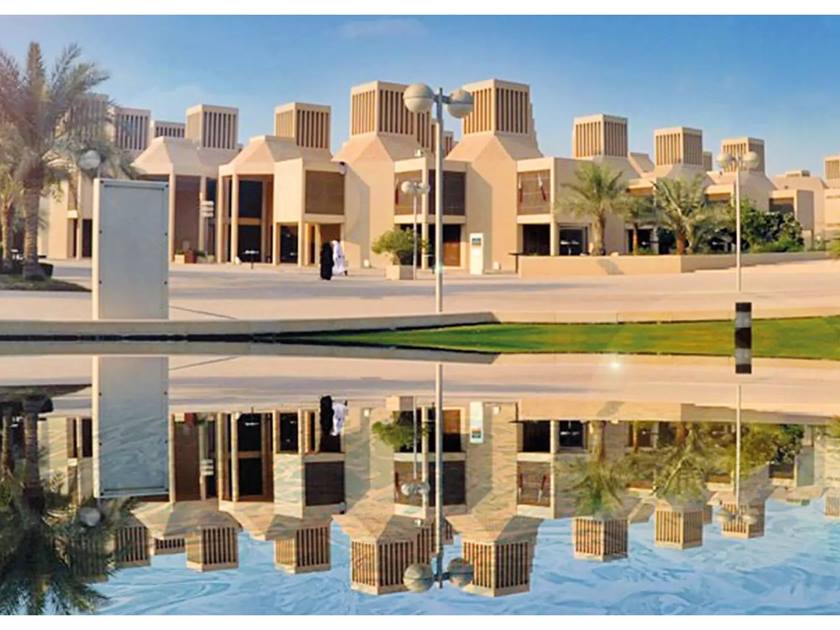QU Organizes 3rd International Conference on Fiscal Policies and Economic Development in Qatar

Doha, January 24 (QNA) - As part of Qatar University (QU)'s efforts, represented by the College of Business and Economics, to enhance collaboration with government entities and serve the business and financial community, the College will organize the 3rd international conference on fiscal policies and economic development in Qatar.
The two-day conference, which will take place from Feb. 7–8, 2024, will be held under the theme "Global Minimum Tax and its Impact on Tax Systems in Gulf Council Countries (GCC)." Additionally, a workshop on "Tax Education" will be held on Feb. 6, 2024.
Dr. Rana Sobh, Dean of the College of Business and Economics at QU, highlighted the conference's role in maximizing its impact on the local and regional business environment, addressing contemporary economic and fiscal policy issues affecting the economy and business.
The conference aims to strengthen collaboration with various government institutions, serve the financial and business communities, and align with the college's strategy to maximize its impact on society by discussing new economic issues and fiscal policies affecting the economy and business, which contribute to providing recommendations that serve decision-makers.
Dr. Rana mentioned that the conference will discuss the pillar 2 of The Organization for Economic Co-operation and Development (OECD)'s report on "Combating Base Erosion and Profit Shifting," resulting in recommendations for implementing the global minimum tax standards. The conference will focus on several aspects, including the general framework of the global minimum tax, its impact on tax policies and systems in the GCC, its influence on foreign investment flows and free zones in the GCC, and its effect on sovereign wealth funds' investments abroad.
Dr. Sobh added that the speakers at the conference include experts and researchers from international financial institutions, global universities, relevant government agencies, consultancy firms, and other stakeholders. Their insights will contribute to providing recommendations that benefit decision-makers.
Regarding the conference's importance to QU's educational process, Dr. Alanoud Al Maadid, Head of Finance and Economics Department, mentioned that the conference includes a day focused on tax education. The discussions will cover academic tax education and tax education in the GCC. This event serves students enrolled in the specialized field of taxation, inaugurated last year.
Dr. Al Maadid emphasized that students' participation aims to develop their capabilities and skills through interaction, exploring employment opportunities post-graduation, and aligning with the college's focus on connecting graduates with the job market. The conference also promotes the college as a center for tax education and research in the region.
Dr. Mahmoud Abdellatif, Associate Professor of Economics and Chair of the Conference Organizing Committee, provided details about the conference agenda. There is a pre-conference workshop on tax education on Tuesday, Feb. 6. This workshop includes several sessions, including an academic perspective on tax education, a panel discussion on professional tax education, a workshop on tax education in the GCC, and a specific educational workshop for CBE students who enrolled in minor in taxation program that workshop title is tax technology.
Dr. Mahmoud stated, "The official opening on Wednesday, Feb. 7, will feature dignitaries from ministries, authorities, and professional accounting and legal Firms. Ahmed Al Muhanadi, Commissioner of General Tax Authority, along with Dr. Omar Al-Ansari, QU President, and Prof. Dr. Rana Sobh, Dean of the College of Business and Economics, will deliver the opening remarks. The keynote speaker of the conference will follow this, and thereafter, there will be panel discussions as follows: the first-panel discussion on pillar 2 and its impact on tax policies; a keynote speaker on pillar 2 and tax treaties; the second-panel discussion on pillar 2 and its impact on tax treaties."
Dr. Mahmoud added, "On Thursday, Feb. 8, the conference will witness the third keynote speaker on pillar 2 and its impact on tax compliance. The third-panel discussion on pillar 2 and its impact on tax incentives, while the fourth-panel discussion on pillar 2 and its impact on tax compliance, the keynote speaker on pillar 2 from the perspective of developing countries, and a workshop on its impact on major Qatari companies operating abroad."
Dr. Mahmoud emphasized that the conference provides an opportunity for researchers, financial and tax affairs managers in Qatari institutions, professional offices, accountants, lawyers, and other professionals interested in tax and financial studies to attend and benefit from the discussions and studies presented at the conference. Those interested in attending can visit the conference website for the program and registration. (QNA)





